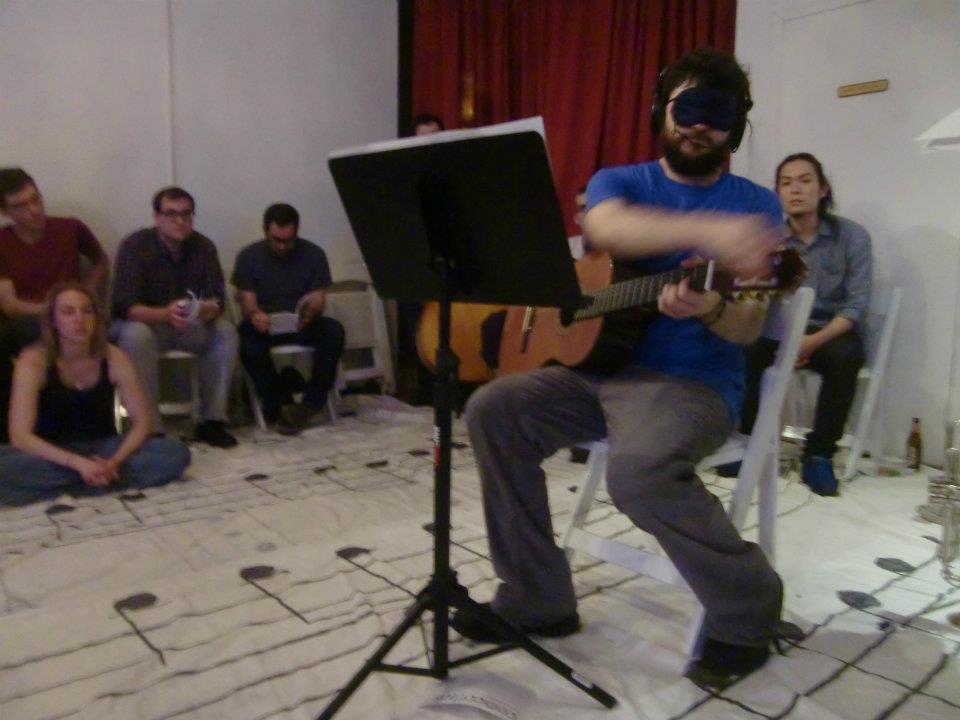
Ellen C Covito
performed at: Vaudeville Park
collaborators: No Collective, Panoply Performance Laboratory
Ellen C Covito
Ellen C. Covito (born 1974) is an Argentinian composer. She is known most for her Composed Improvisation and Improvised Composition series.
Covito’s early works consisted in attempts to apply theoretical structures and ideas surrounding environmental problems to music.
Her works since 2009 deal with the dichotomy between composition and improvisation. She does this by introducing distance between the performer and what is performed, while removing the distance between the act of composition and performance.
In May 2012, the first concert of Covito’s music outside Buenos Aires was organized in Brooklyn by Panoply Performance Laboratory and No Collective.
In September 2012, another concert of Covito’s music was organized in Tokyo by No Collective and the Ensemble for Experimental Theatre and Music.
Here’s an excerpt from the performance which I co-organized:
Composers: Ivan Naranjo, Brian McCorkle, Aliza Simons, Maria Stankova Performers: Sean Ali, Gelsey Bell, Travis Just, Masami Tomihisa Vaudeville Park, Brooklyn. May 24, 2012
A piece for equal number of composers and performers. All performers and composer appear on stage. The composers compose in real‐time. As soon as s/he finishes a fragment of any length, it is passed to a performer (or performers) who immediately perform(s) it. The performer plays the fragment until the end, or until another fragment is passed on to him/her. If no new fragment appears by the end of the given fragment, the performer repeats the same fragment again, until a new fragment is given. The composer‐performers may not collaborate. The performance proceeds on a first‐come, first‐served basis, so the composer who writes his/her fragment most quickly, and to the most number of performers, gets to be performed the most. However, reasons to decide otherwise may exist: a) one wants to have his/her fragment repeated (à la minimal music) over and over again, b) one likes what the other composer composed and decides to listen, or, c) one prefers to work on a single performer rather than dealing with the whole group. How these desires and interests differ and are adjusted or not between the composers should not be decided in advance, but left to be improvised. The ending is also composed by the composers.